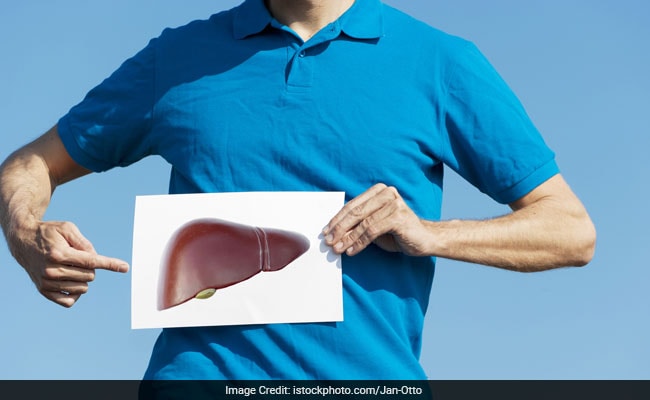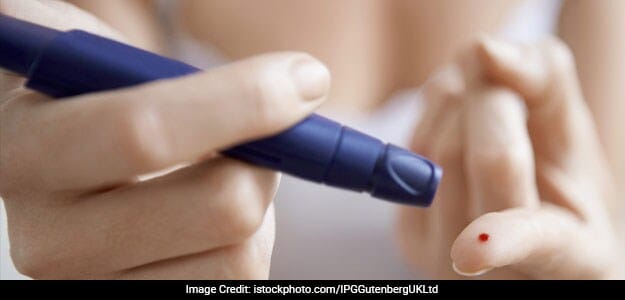
- Fatty tissues can develop inside the liver without alcohol consumption
- Non-alcoholic fatty liver can also trigger the risk of cirrhosis
- High cholesterol levels can lead to non-alcoholic fatty liver
Alcohol consumption can harm your liver health majorly. This decreases liver function and can lead to severe complications. But sometimes there are cases when there can be development of fatty tissues in the liver without consumption of alcohol and with less alcohol. This condition is called non-alcoholic fatty liver. If left untreated it can even lead to cirrhosis. Non-alcoholic fatty liver happens when there is too much fat stored in the liver cells. This condition includes some symptoms like fatigue, pain in the upper right side of the abdomen, enlarged blood vessels, yellow and pale skin. This condition should not be ignored and needs treatment to stop it from progressing to a serious stage.
Non-alcoholic fatty liver: Risk Factors
If alcohol is not a part of your diet, you might be wondering what can contribute to a fatty liver. There are multiple factors which can contribute to a fatty liver and trigger the condition.
Dr. Sonal Asthana, Sr. Consultant - HPB & Transplant Surgery explained, "Non-alcoholic fatty liver disease (NAFLD) is caused due to a combination of genes, diet and a lack of exercise. NAFLD is best understood as a precursor of other metabolic issues such as diabetes and heart disease. This, compounded by our high carbohydrate diet and lack of everyday exercise has made NAFLD common even in non obese individuals."
Some of the risk factors may include-
- High levels of cholesterol
- Obesity, which is the most common risk factor
- Diabetes
- Sleep apnea
- Underactive thyroid
- High levels of triglycerides or high blood fats
Also read: Melt Belly Fat And Get Rid Of A Fatty Liver With This Kind Of Training!
Prevention tips for non-alcoholic fatty liver
Non-alcoholic fatty liver should not be ignored. You need to choose the right treatment in time. You can also try some prevention steps to stop the condition from occurring. Here are some prevention steps which can help you prevent this serious condition.
"Diet is the best way to prevent fatty liver - as the saying goes, you cannot outrun a bad diet. Avoid carbohydrate Rich diets and processed sugars like colas and canned juices. Decreasing carbohydrate intake over a two month period can significantly decrease fatty liver . If one is overweight, then investing in gradual weight loss with diet and exercise is preferable to extreme weight loss fad diets , as they can worsen fatty liver disease. The second is exercise- 30-45 minutes of brisk exercise a day improves cardiac health and liver issues. People who have diabetes should have regular liver checks including liver function and scans to assess liver fat and early damage," added Dr. Sonal
1. Lose weight
If you are overweight you need to lose weight to prevent non-alcoholic fatty liver. Limit the number of calories you consume each day and involve yourself in some exercise on a daily basis to lose weight. Losing weight can help you reduce fat, scarring in the liver and inflammation. A healthy weight will also reduce the risk of several other diseases.

Weight loss can help you reduce the risk of non-alcoholic fatty liver
Photo Credit: iStock
2. Exercise regularly
Physical exercise can naturally reduce the risk of multiple diseases. It is advised to exercise for at least 30 minutes each day. If exercise is not a part of your routine, check with your doctor and start with some basics.
Also read: Here's Why Liver Disease Happens; Know The Tips For Prevention
3. Manage your cholesterol levels
Poor cholesterol levels are bad for your overall health. It can mainly affect your heart health. Eat a healthy diet rich in fruits and vegetables to maintain cholesterol. Also, try to avoid foods high in fats, processed foods and foods with added sugar
4. Lower your blood sugar levels
Diabetes is a common risk factor of non-alcoholic fatty liver disease. If you are a diabetic you need to manage your blood sugar levels to control the risk of non-alcoholic fatty liver. Regular exercise and a healthy diet can contribute to better blood sugar levels.

Manage your blood sugar levels for better liver health
Photo Credit: iStock
5. Choose a healthy diet
What you eat affects your body both internally and externally. Choose foods which are high in fibre. Add more fruits and vegetables to your diet. Whole grains can also be added to your diet. A healthy diet can affect more than your stomach.
Also read: 5 Foods Damaging Your Liver
(Dr. Sonal Asthana is a Sr. Consultant - HPB & Transplant Surgery at Aster CMI Hospital)
Disclaimer: This content including advice provides generic information only. It is in no way a substitute for qualified medical opinion. Always consult a specialist or your own doctor for more information. NDTV does not claim responsibility for this information.
Track Latest News Live on NDTV.com and get news updates from India and around the world

